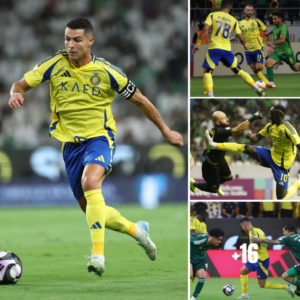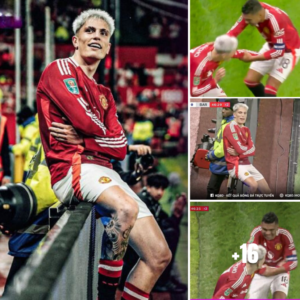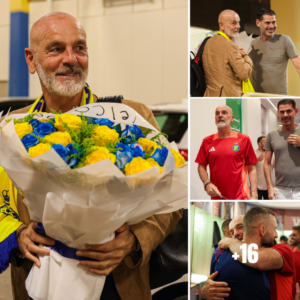At just 19 years old, Cristiano Ronaldo learned a hard lesson from the Greek team in the EURO 2004 final: nothing is guaranteed in football.
“Football has taught me many things, one of which is that nothing is certain,” Ronaldo reflected on the UEFA homepage. Twenty years ago, a youthful Ronaldo watched his dreams shatter as Greece stunned the Portuguese team. Despite having every advantage, Portugal was left helpless against Greece’s unwavering resilience.
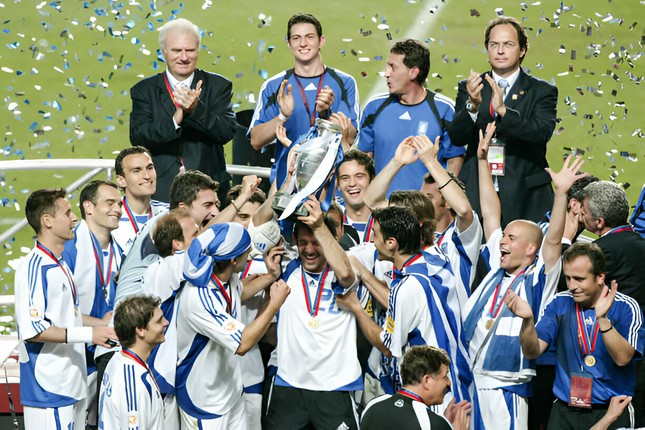
Greeks wrote fairy tales.
Before EURO 2004 started, Greece and Latvia were the two most underrated teams. For those who dare to put their faith in Greece winning the championship, their reward is 150/1 (winning 150 times).
Greece falls into a group with Portugal, Spain and Russia. The chance for Otto Rehhagel and his students to continue is extremely slim. However, they won against Portugal in the opening match, then drew with Spain. Greece has the same 4 points as Spain but won the ticket to the next round thanks to a better scoring difference.
Two headed goals brought Greece past defending champions France and the Czech Republic, respectively. Portugal met Greece again, from the opening match to the final, only 23 days apart. Coach Luiz Scolari knows very well what Greece has in Coach Rehhagel’s hands in the final match? It is a team without stars but operates scientifically and directly. For Greece, disrupting the opponent’s playing style and taking full advantage of dead ball situations is a belief that leads to good results.
Once again, Greece made their opponents hate them with a high ball. Portugal focuses on preventing Zisis Vryzas, Greece’s main aerial combat nose, 1.9 m high. However, the scorer was Angelos Charisteas. Portugal’s low-height squad has revealed its “dead spots”. Costinha, who was assigned to Charisteas, is 10 cm shorter than his opponent. When both of them guessed the landing point, it was too easy for Charisteas to jump and score.
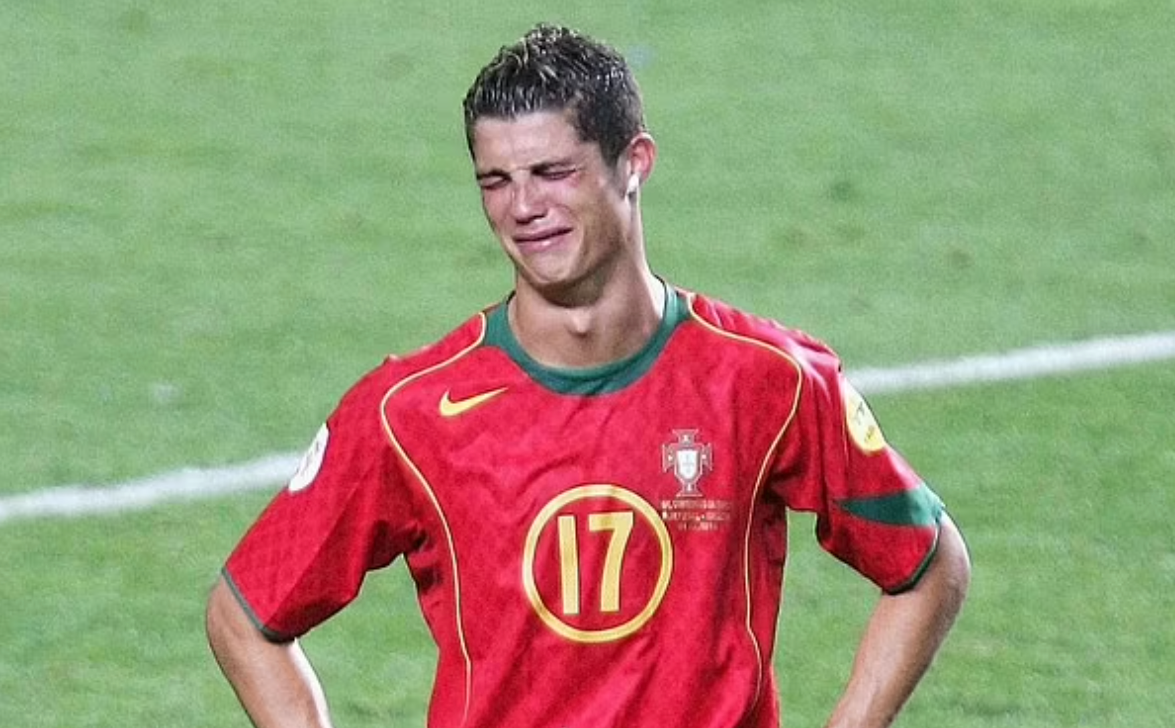
Also in an aerial battle drama, Coach Scolari was powerless before the country of the gods.
But Portugal should first blame itself. They failed after 11 shots, while Greece only had 3. In the 75th minute, Ronaldo escaped and faced the Greek goalkeeper, but handled the first step insensitively and hastily finished. 5 minutes later, it was Ronaldo who made a good move to break the offside trap but finished sloppily.
The EURO 2004 final reflected everything about Ronaldo at that stage. A teenage CR7 plays football on inspired, elegant feet, with razor-sharp moves. However, the most important thing Ronaldo needs to do is be accurate in the final step, which he did not show against Greece.
Ronaldo said, at that moment, he thought this was the brightest opportunity for Portugal to win EURO 2004. The loss in the final, right at home, made Ronaldo unable to keep calm when the referee blew the final whistle. .
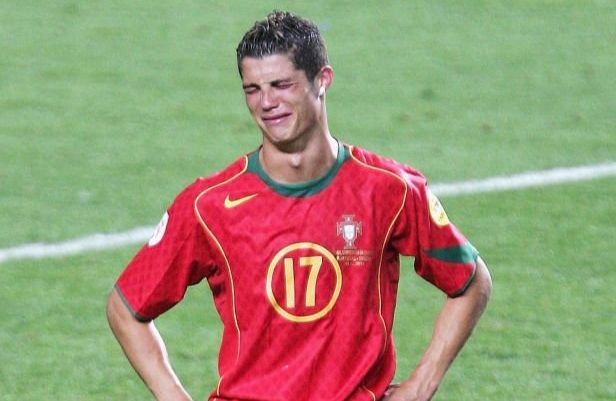
Ronaldo’s bitter tears.
After Denmark’s fairy tale (EURO 1992), the EURO tournament left Greece in the spotlight as the team that won the championship according to an unimaginable scenario.
There were too many shocks happening at EURO 2004. Spain, Italy and Germany were eliminated from the group stage. In the quarterfinals, Greece sent France home. The Czech Republic team is full of desire, conquering the audience with an emotional attack, following in the footsteps of France, disillusioned by Greece.
The after effects of EURO 2004, the failures mentioned and dissected by the European media are more than the Greek championship. Besides the footage of Ronaldo bursting into tears and David Beckham’s “sky high” penalty kick, the match against Portugal in the quarterfinals of EURO 2004 is a classic moment.
Beckham made the British give up a little hope of defeating Portugal in the penalty shootout. Rui Costa’s missed shot in the third series brought back hope for the “Three Lions”. However, the decisive missed shot from Darius Vassel officially sent off England’s “golden generation” with new generation stars John Terry, Steven Gerrard, Frank Lampard, Ashley Cole, Wayne Rooney, packing up and returning to England.
Also a feeling of regret, the audience felt sorry for the Czech soared on the inspiration of a group of players who achieved high performance at EURO 2004, including Pavel Nedved, Tomas Rosicky and Milan Baros. Karel Bruckner and his team won all three group stage matches, sinking Denmark in the quarterfinals. They outplayed Greece but collapsed because of Traianos Dellas’s silver goal.
Obviously, the Portuguese also have the right to blame fate, when their generation of talented players, with leader Luis Figo and an excellent new factor like Ronaldo, lost in the final. Many teams at EURO 2004 lost in a sudden manner, they would blame it on bad luck.
But no matter what, in the end there is only one champion, Greece.


